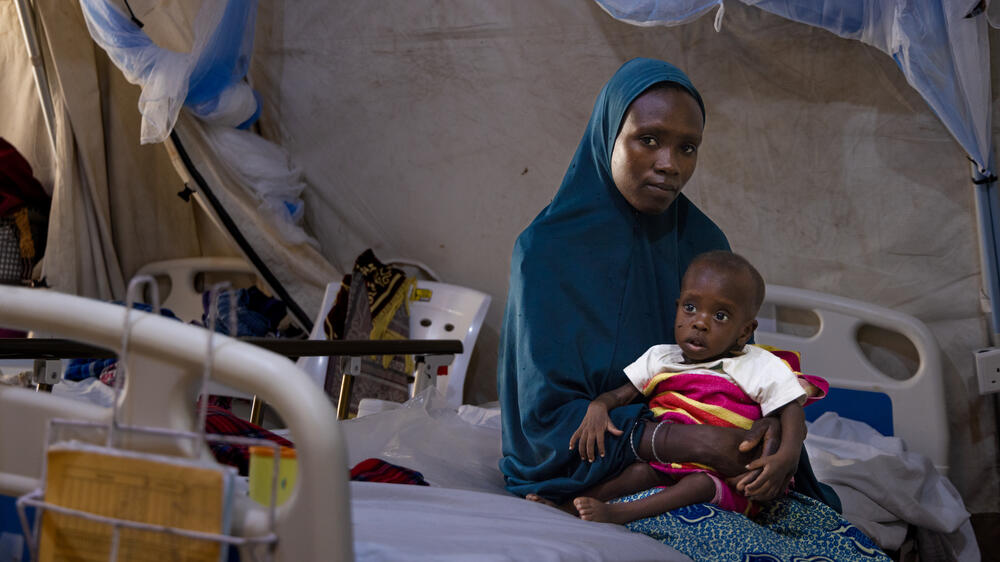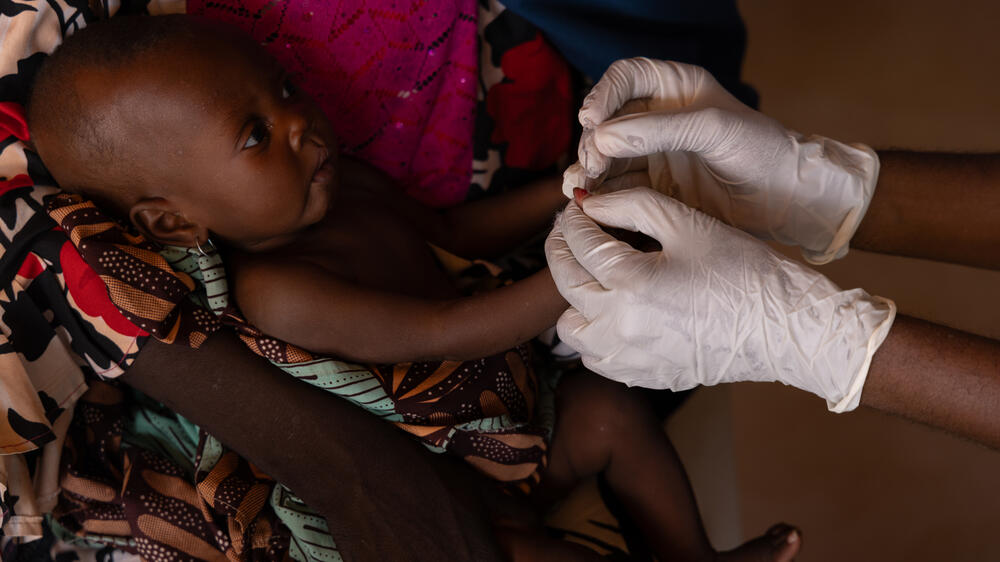Nigeria: MSF treats record number of malnourished children in the north
In recent weeks, there has been an extraordinary increase in severely malnourished children with life-threatening complications admitted to Médecins Sans Frontières / Doctors Without Borders (MSF) inpatient facilities in northern Nigeria, with double the number of admissions from last year in some locations.
Horrifyingly, the high influx of patients with acute malnutrition is occurring before the usual peak in July.
"We are resorting to treating patients on mattresses on the floor because our facilities are full. Children are dying. If immediate action is not taken, more lives hang in the balance,” says Dr Simba Tirima, MSF’s Country Representative in Nigeria.
“Everyone needs to step in to save lives and allow the children of northern Nigeria to grow free from malnutrition and its disastrous long-term, if not fatal, consequences.”
MSF is calling upon the Nigerian authorities, international organisations and donors to take immediate action to diagnose and treat malnourished children to prevent associated complications and deaths. Sustained, long-term initiatives are also needed to treat the underlying causes of this urgent problem.
"We've been warning about the worsening malnutrition crisis for the last two years. 2022 and 2023 were already critical, but an even grimmer picture is unfolding in 2024,” adds Dr Tirima.
“We can't keep repeating these catastrophic scenarios year after year. What will it take to make everyone take notice and act?"
“We've been warning about the worsening malnutrition crisis for the last two years”
Widespread increases
In April, MSF’s medical team in Maiduguri in northeast Nigeria admitted 1,250 severely malnourished children with complications to the inpatient therapeutic feeding centre. This is double the figure for the same month in the previous year.
Forced to urgently scale up capacity, by the end of May the centre accommodated 350 patients, far surpassing the 200 beds initially designated for the peak malnutrition season in July and August.
Also in the northeast, the MSF-operated facility in Bauchi state's Kafin Madaki hospital recorded a significant 188 percent increase in admissions of severely malnourished children during the first three months of 2024 compared to the same period in 2023.
In the northwestern part of the region, in Zamfara state, the inpatient centres in Shinkafi and Zurmi have received up to 30 percent more admissions in April compared to March. Talata Mafara’s facility saw about 20 percent increase in the same period.
Similarly in April, MSF inpatient facilities in major cities like Kano and Sokoto reported alarming surges, by 75 and 100 percent respectively. The therapeutic feeding centre in Kebbi state also documented a rise of more than 20 percent in inpatient admissions from March to April 2024.
Alarming reductions
“We are alarmed by the reduction in aid at these critical times. Reducing nutritional support to only severely malnourished children is akin to waiting for a child to become gravely ill before providing care,” states Dr Tirima.
“We urge donors and authorities to increase support urgently for both curative and preventive approaches, ensuring that all malnourished children receive the care they desperately need.”
The persistent malnutrition crisis in northern Nigeria stems from a variety of factors such as inflation, food insecurity, insufficient healthcare infrastructure, ongoing security issues, and disease outbreaks worsened by low vaccine coverage.
Tackling acute malnutrition in northern Nigeria requires preventive and curative steps. As an immediate measure it’s important to establish and strengthen healthcare facilities and programmes capable of diagnosing and treating malnutrition effectively.
Additional key steps include reinforcing vaccine programmes that can help stave off vaccine-preventable diseases, enhancing access to nutritious food through agricultural initiatives and food distribution programs, improving water and sanitation situation and raising awareness.
MSF and malnutrition
Around 45 percent of all deaths in young children are linked to malnutrition; when children suffer from acute malnutrition, their immune systems are so impaired that the risk of death is greatly increased.
In 2022, we admitted 127,400 severely malnourished children into inpatient feeding programmes (an increase of 55% on 2021) across the world, and 324,591 to outpatient programmes (an increase of 100% on 2021).



